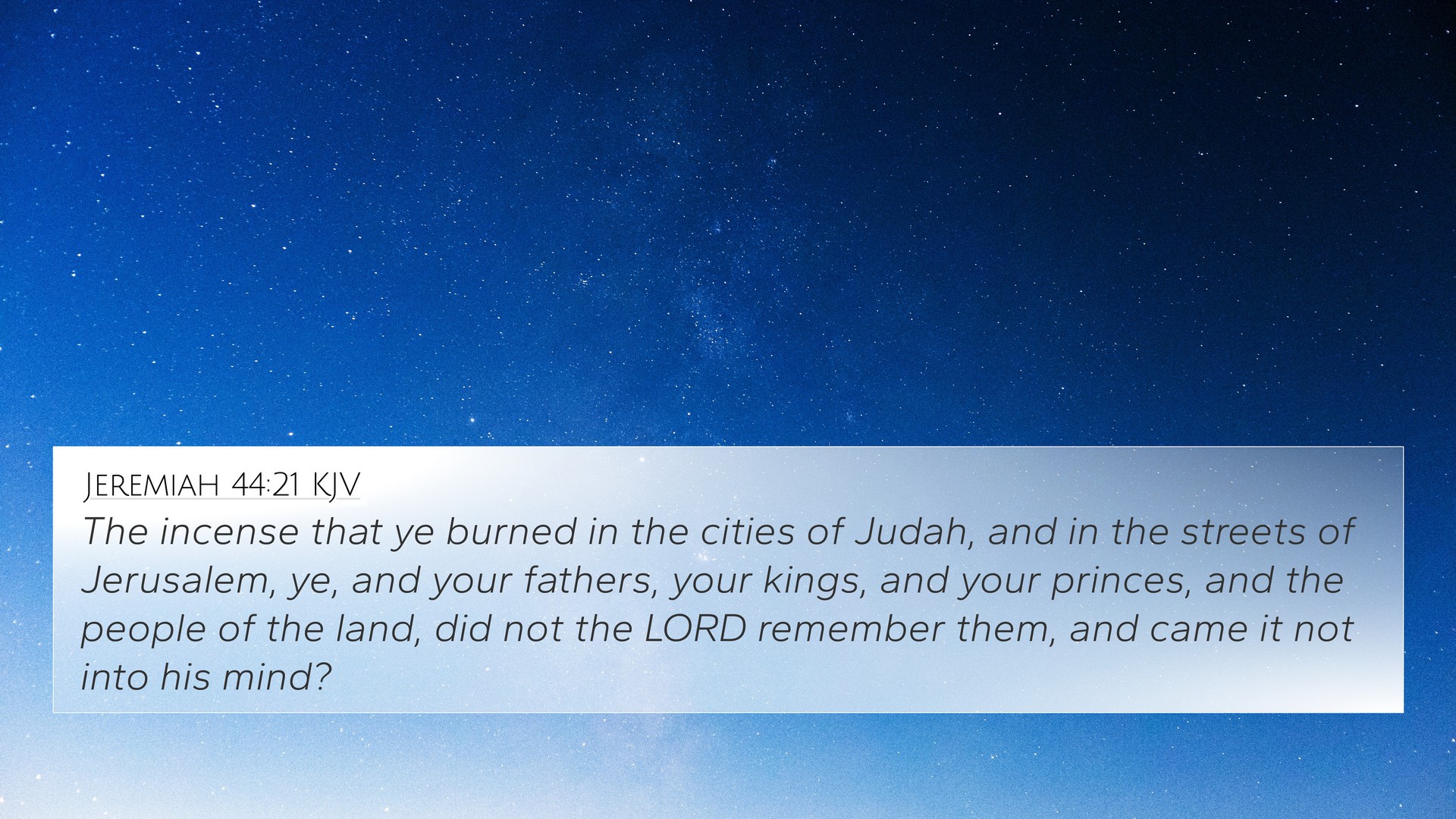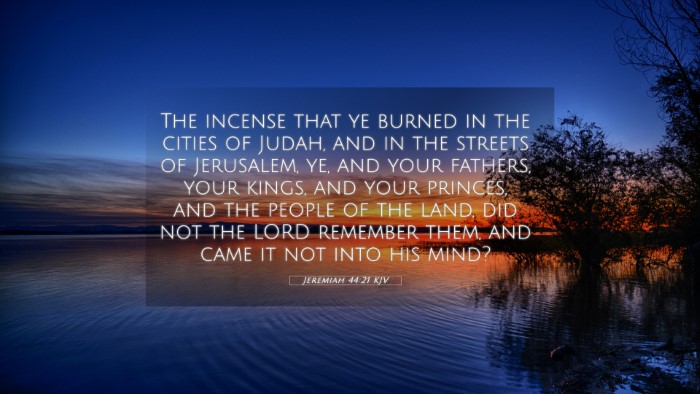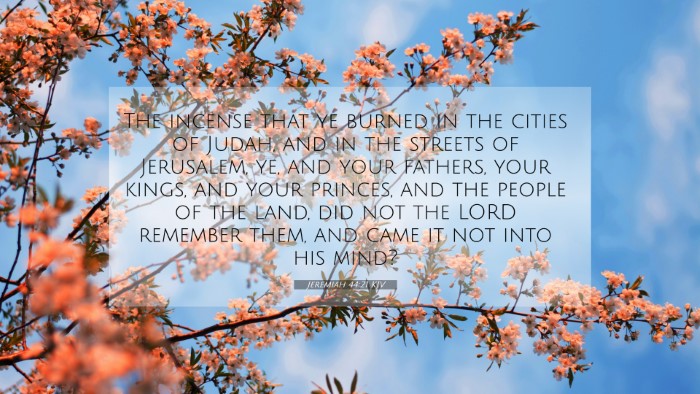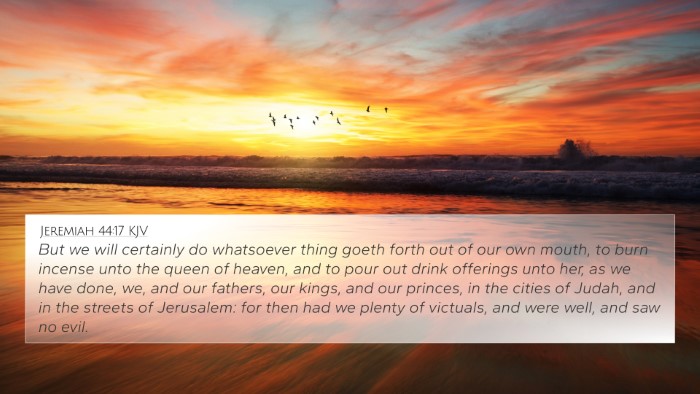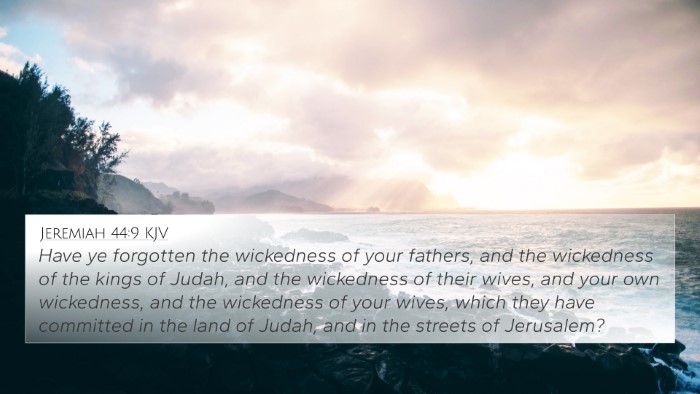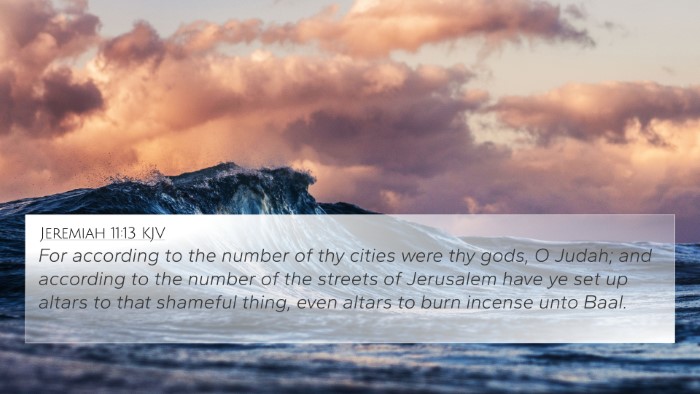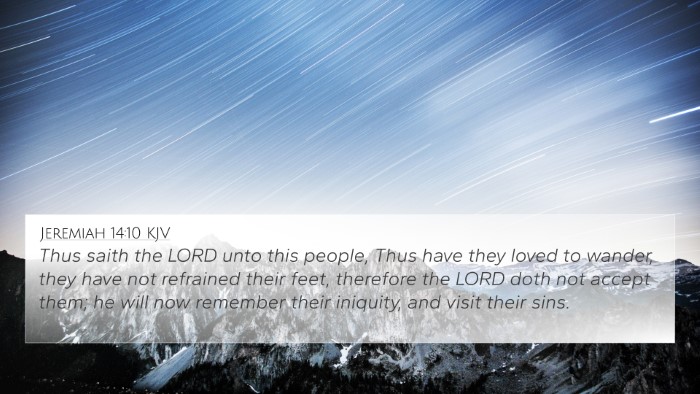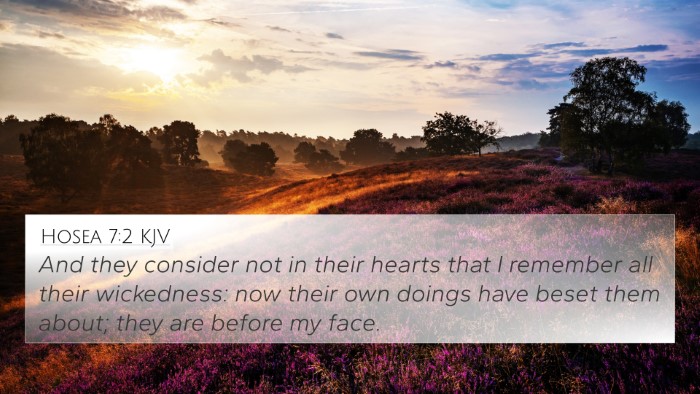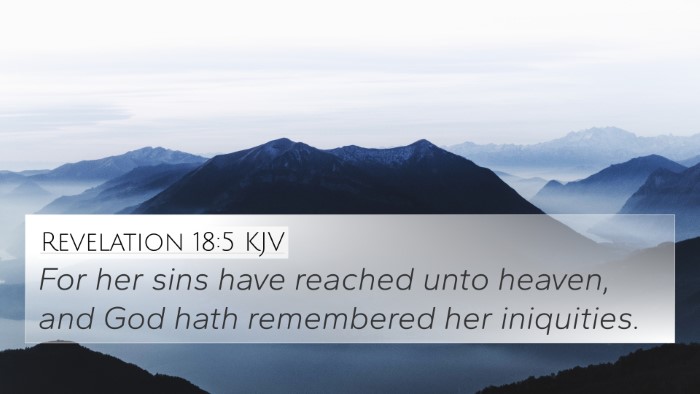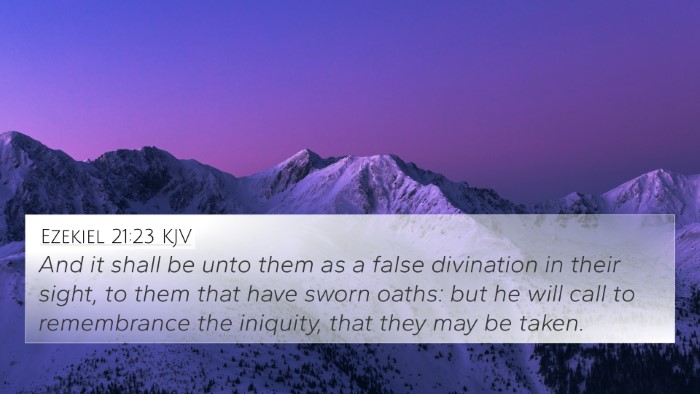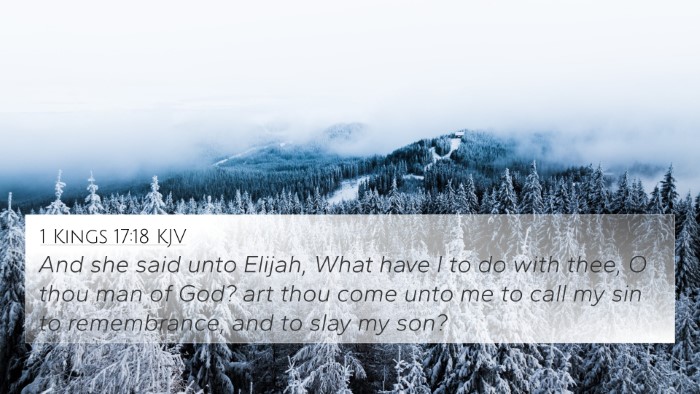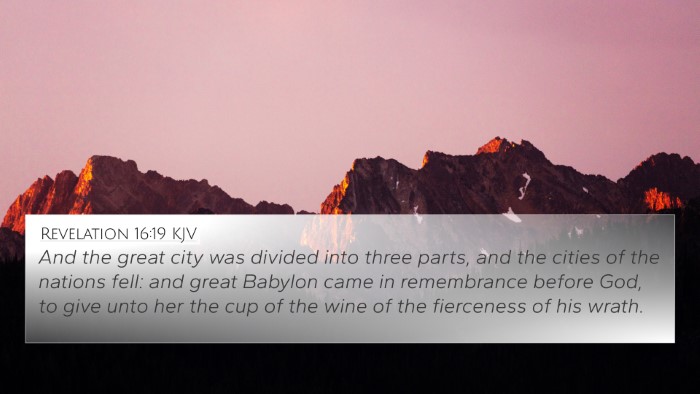Understanding Jeremiah 44:21
Jeremiah 44:21 states: "The incense that you burned in the cities of Judah and in the streets of Jerusalem, you and your fathers, your kings and your princes, and the people of the land, did not the Lord remember them, and came it not into his mind?" This verse raises essential points regarding the worship practices of the people of Judah and God's response to them.
Summary of Insights
Commentaries by notable theologians like Matthew Henry, Albert Barnes, and Adam Clarke provide depth to the meaning of this verse:
- Matthew Henry: This commentary highlights that the people of Judah had turned to idolatry, paying homage to false gods through rituals like burning incense. Henry stresses that their actions were not forgotten by God, indicating His awareness and judgment on their idolatry.
- Albert Barnes: Barnes elaborates on the “memory” of God concerning the people's actions, underscoring the futility of their worship of idols. He notes how those practices were not just empty, but they invoked God's anger, and they were never intended to substitute the true worship of God.
- Adam Clarke: Clarke points to the consequences of their actions, indicating that choosing to partake in idol worship resulted in a severance of their relationship with God. He emphasizes that God’s memory of their actions highlights His holiness and the seriousness of their rebellion.
Bible Cross-References
Jeremiah 44:21 connects to various other Bible verses that discuss themes such as judgment, idolatry, and obedience to God:
- Jeremiah 1:16: God warns Israel about the consequences of their idolatry.
- Isaiah 65:11: A reflection on the worship of false gods and its repercussions.
- Hosea 4:6: God’s people are destroyed for lack of knowledge, emphasizing the importance of worshiping the true God.
- Ezekiel 8:17-18: God reveals the abominations committed by His people in Jerusalem.
- Exodus 20:3-5: The commandment against having other gods emphasizes the centrality of God’s sovereignty.
- 2 Kings 17:16: The practices of Israel leading to their downfall resemble those of Judah in Jeremiah.
- Romans 1:25: Paul reiterates the consequence of exchanging the truth of God for a lie, reflecting thematic connections to Jeremiah's warnings.
Thematic Bible Verse Connections
The themes of Jeramiah 44:21 resonate through various parts of scripture. Key themes can be explored through the lens of cross-referencing:
- Idolatry: Many verses, such as Psalm 115:4-8, discuss the futility of idol worship, much like Jeremiah's condemnations.
- God’s Judgment: Matthew 7:21-23 emphasizes that mere ritualistic behavior without knowing God is worthless, paralleling the message in Jeremiah.
- The Importance of True Worship: John 4:24 highlights the necessity of worshiping God in spirit and truth, contrasting the false worship in Jeremiah's time.
Cross-Referencing Study Methods
When studying Jeremiah 44:21, employing cross-referencing methods can enhance understanding:
- Bible Concordance: Utilize concordances to find related verses that discuss the repercussions of idolatry.
- Bible Cross-Reference Guide: Use guides to trace the theme of idolatry through both the Old and New Testaments.
- Cross-Referencing Themes: Identify thematic links by comparing verses that cover idolatry across the scriptures.
Conclusion
Jeremiah 44:21 serves as a powerful reminder of the consequences of forsaking true worship in favor of idols. By studying this verse in conjunction with related scriptures, believers can gain deeper insights into God’s expectations and the seriousness of maintaining a pure worship practice.
This analysis has explored Jeremiah 44:21 with insights from public domain commentaries and has linked it to various Bible verses to illustrate the connections between scriptural teachings, emphasizing the importance of maintaining a relationship with God through genuine worship and obedience.
